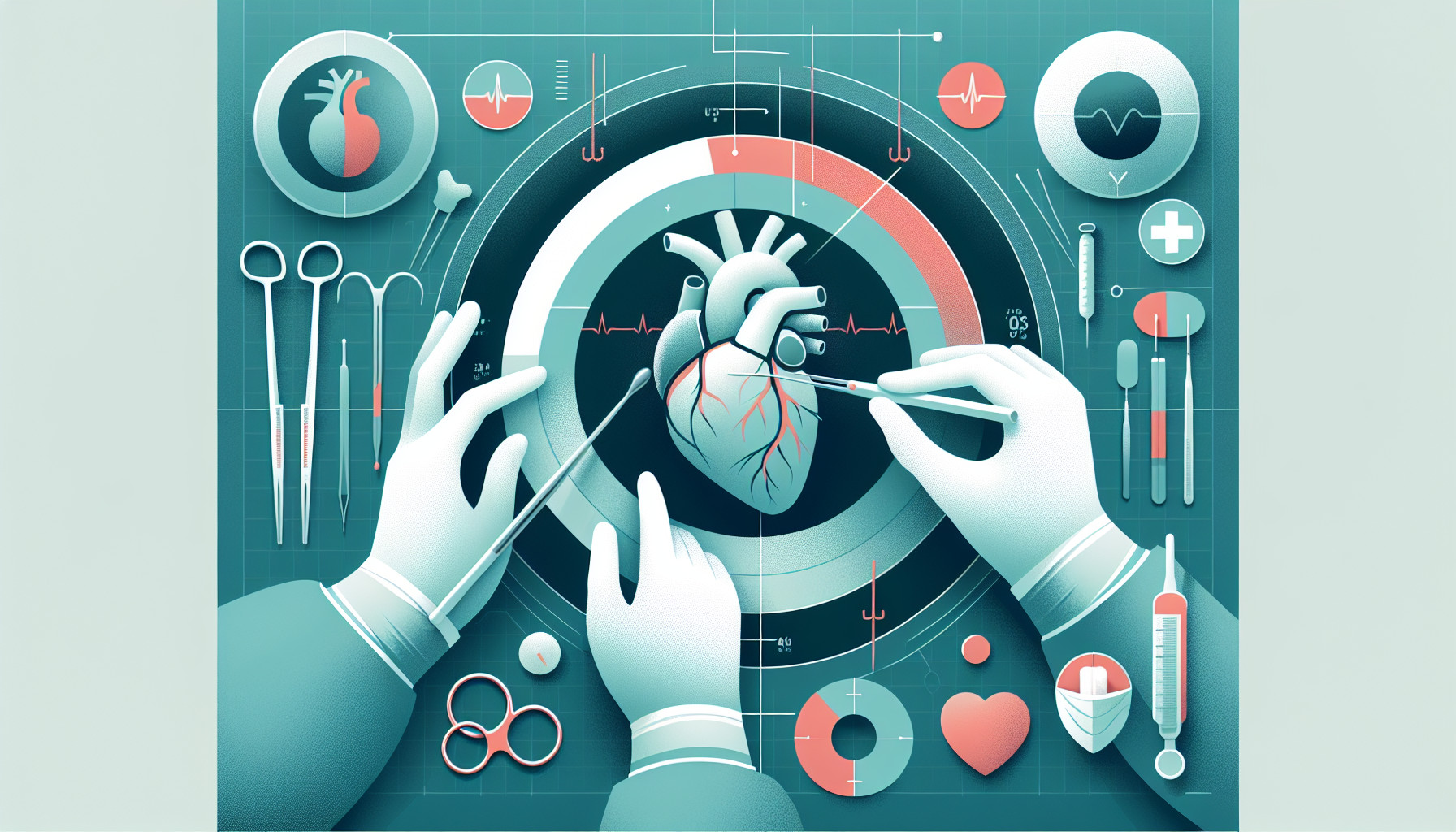Our Summary
This research paper examines a treatment method for a certain type of irregular heartbeat known as non-paroxysmal atrial fibrillation. Traditional treatments often fail to fully address this condition, particularly in its advanced stages, and patients often need ongoing medication or repeat procedures. The paper discusses a more effective and safer treatment called hybrid ablation, which combines the expertise of heart rhythm specialists and heart surgeons. This approach has been shown to be particularly effective for long-term persistent atrial fibrillation in a clinical trial. The paper offers guidance on how to implement this treatment approach and how to select appropriate patients.
FAQs
- What is non-paroxysmal atrial fibrillation and why are traditional treatment methods not fully effective?
- What is hybrid ablation and why is it considered more effective and safer for treating advanced stage non-paroxysmal atrial fibrillation?
- How can medical professionals determine which patients are appropriate for the hybrid ablation treatment approach?
Doctor’s Tip
A helpful tip a doctor might tell a patient about cardiac ablation is to discuss the potential risks and benefits of the procedure with their healthcare provider. It is important for patients to have a clear understanding of what to expect before, during, and after the procedure, as well as any potential complications that may arise. It is also important for patients to follow their healthcare provider’s instructions for pre- and post-procedure care to ensure the best possible outcome.
Suitable For
Patients who are typically recommended for cardiac ablation are those who have a certain type of irregular heartbeat, such as atrial fibrillation, that has not responded well to traditional treatments like medication. In particular, patients with non-paroxysmal atrial fibrillation, which is a more persistent form of the condition, may benefit from cardiac ablation.
Patients who have tried other treatments but continue to experience symptoms like palpitations, fatigue, and shortness of breath may be good candidates for cardiac ablation. Additionally, patients who have a high risk of stroke or other complications due to their irregular heartbeat may also be recommended for this procedure.
In the case of the hybrid ablation approach discussed in the research paper, patients with long-term persistent atrial fibrillation may be particularly well-suited for this treatment. This approach involves a combination of catheter-based ablation techniques performed by heart rhythm specialists and surgical ablation performed by heart surgeons, offering a more comprehensive and effective treatment option for certain patients.
Ultimately, the decision to recommend cardiac ablation for a patient will depend on their individual medical history, symptoms, and risk factors. It is important for healthcare providers to carefully evaluate each patient’s case and consider all treatment options before making a recommendation for cardiac ablation.
Timeline
Before cardiac ablation:
- Patient experiences symptoms of irregular heartbeat, such as palpitations, dizziness, and shortness of breath
- Patient undergoes various tests, such as electrocardiogram (ECG) and echocardiogram, to diagnose the specific type and severity of the arrhythmia
- Patient may try medications to control the irregular heartbeat, but they may not be fully effective
- Patient may undergo a catheter ablation procedure, where a catheter is inserted into the heart to destroy the abnormal tissue causing the arrhythmia
After cardiac ablation:
- Patient may experience some discomfort or soreness at the catheter insertion site immediately after the procedure
- Patient is monitored closely for any complications, such as bleeding or infection
- Patient may need to stay in the hospital for a day or two for observation
- Patient is prescribed medications to prevent blood clots and to help regulate their heart rhythm
- Patient is advised to rest and avoid strenuous activities for a period of time after the procedure
- Patient follows up with their healthcare provider regularly to monitor their progress and adjust medications as needed
- Patient may experience a significant improvement in their symptoms and quality of life after the ablation procedure, with a reduced risk of complications compared to other treatment options.
What to Ask Your Doctor
- What is cardiac ablation and how does it work to treat irregular heartbeats?
- What specific type of irregular heartbeat does cardiac ablation treat?
- What are the potential risks and complications associated with cardiac ablation?
- How successful is cardiac ablation in treating non-paroxysmal atrial fibrillation compared to other treatment options?
- What is the recovery process like after undergoing cardiac ablation?
- Are there any lifestyle changes or restrictions I need to follow after the procedure?
- How long will the effects of cardiac ablation last and will I need any follow-up procedures?
- What is the success rate of hybrid ablation compared to traditional ablation procedures?
- Am I a good candidate for hybrid ablation based on my specific condition and medical history?
- Are there any ongoing clinical trials or research studies on hybrid ablation that I should be aware of?
Reference
Authors: De Lurgio DB. Journal: J Cardiovasc Electrophysiol. 2023 Oct;34(10):2179-2187. doi: 10.1111/jce.15901. Epub 2023 Apr 18. PMID: 37003267
